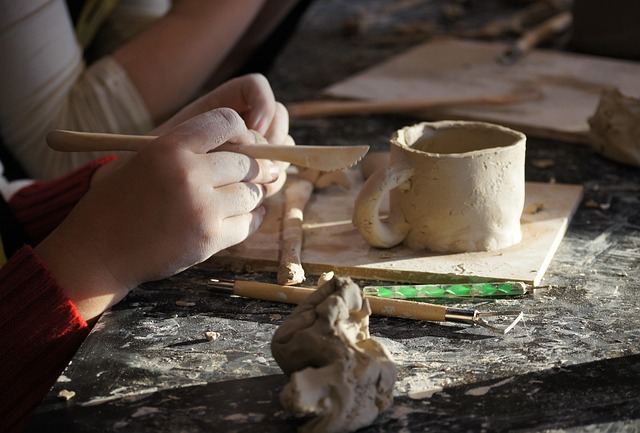Dental Implants: Complete Guide to Types, Costs, and Finding Quality Providers
Dental implants have revolutionized tooth replacement, offering a permanent solution that looks, feels, and functions like natural teeth. These titanium posts surgically placed into the jawbone provide a stable foundation for crowns, bridges, or dentures, helping millions of people worldwide restore their smiles and confidence.

What Are the Different Types of Dental Implants Available?
The most common types of dental implants include endosteal and subperiosteal implants. Endosteal implants are the standard option, consisting of titanium screws placed directly into the jawbone. These work best for patients with sufficient bone density and healthy gums. Subperiosteal implants sit on top of the jawbone but under the gum tissue, making them suitable for patients who cannot undergo bone augmentation procedures.
Single-tooth implants replace individual missing teeth, while implant-supported bridges can replace multiple adjacent teeth. All-on-4 and All-on-6 systems provide full-arch solutions, supporting an entire set of upper or lower teeth with just four to six strategically placed implants.
How Long Do Dental Implants Last and What’s the Success Rate?
Dental implants boast an impressive success rate of 95-98% when performed by qualified professionals. With proper care and maintenance, implants can last 25 years or even a lifetime. The crown portion may need replacement after 10-15 years due to normal wear, but the implant itself typically remains stable indefinitely.
Factors affecting longevity include oral hygiene habits, smoking status, overall health conditions like diabetes, and regular dental checkups. Patients who maintain excellent oral care and avoid harmful habits like teeth grinding generally experience the best long-term outcomes.
What Does the Dental Implant Procedure Involve?
The dental implant process typically occurs in multiple stages over several months. Initial consultation includes comprehensive examination, X-rays, and treatment planning. During the surgical phase, the dentist places the titanium implant into the prepared socket in the jawbone under local anesthesia.
Osseointegration follows, where the implant fuses with surrounding bone tissue over 3-6 months. Once healing is complete, an abutment connects the implant to the final restoration. The custom crown, bridge, or denture is then attached, completing the restoration process.
How to Find Qualified Dental Implant Specialists in Your Area?
Finding skilled dental implant providers requires thorough research and evaluation. Start by seeking referrals from your general dentist, friends, or family members who have undergone implant treatment. Verify credentials through professional dental associations and state licensing boards to ensure proper qualifications.
Look for specialists with extensive implant training, such as oral surgeons, periodontists, or prosthodontists. Review before-and-after photos, read patient testimonials, and schedule consultations with multiple providers. Ask about their experience, success rates, and available technology like 3D imaging and computer-guided surgery.
What Unique Advantages Do Modern Dental Implants Offer?
Contemporary dental implant technology incorporates advanced materials and techniques that weren’t available decades ago. Immediate loading implants allow same-day tooth replacement in suitable candidates, eliminating the traditional waiting period. Computer-guided surgery ensures precise placement while minimizing tissue trauma and recovery time.
Surface treatments on modern implants promote faster osseointegration, while mini implants offer solutions for patients with limited bone structure. Some implants now feature antimicrobial coatings that reduce infection risk, and zirconia alternatives provide metal-free options for patients with titanium sensitivities or aesthetic concerns in visible areas.
Understanding Dental Implants Cost and Comparing Providers
Dental implants cost varies significantly based on location, complexity, and provider expertise. Single implants typically range from $3,000 to $6,000, including the implant, abutment, and crown. Full-mouth reconstruction can cost $20,000 to $50,000 per arch, while All-on-4 systems generally range from $15,000 to $30,000 per arch.
| Treatment Type | Cost Range | Provider Examples | Key Considerations |
|---|---|---|---|
| Single Implant | $3,000 - $6,000 | ClearChoice, Aspen Dental | Includes implant, abutment, crown |
| All-on-4 (per arch) | $15,000 - $30,000 | ClearChoice, Teeth Tomorrow | Full arch replacement |
| Full Mouth (both arches) | $40,000 - $80,000 | ClearChoice, Nuvia | Complete smile reconstruction |
| Mini Implants | $1,500 - $3,000 | Local specialists | Limited applications |
Insurance coverage varies, with some plans covering 10-50% of implant costs. Many providers offer financing options, payment plans, or partnerships with healthcare credit companies. Compare total treatment costs rather than individual component prices, and consider the long-term value compared to alternatives like bridges or dentures that require regular replacement.
Prices, rates, or cost estimates mentioned in this article are based on the latest available information but may change over time. Independent research is advised before making financial decisions.
Conclusion
Dental implants represent the gold standard for tooth replacement, offering durability, functionality, and aesthetic appeal that surpasses traditional alternatives. While the initial investment may seem substantial, the long-term benefits and improved quality of life make implants a worthwhile consideration for most candidates. Research providers carefully, understand all associated costs, and consult with qualified professionals to determine the best treatment approach for your specific needs and circumstances.
This article is for informational purposes only and should not be considered medical advice. Please consult a qualified healthcare professional for personalized guidance and treatment.






